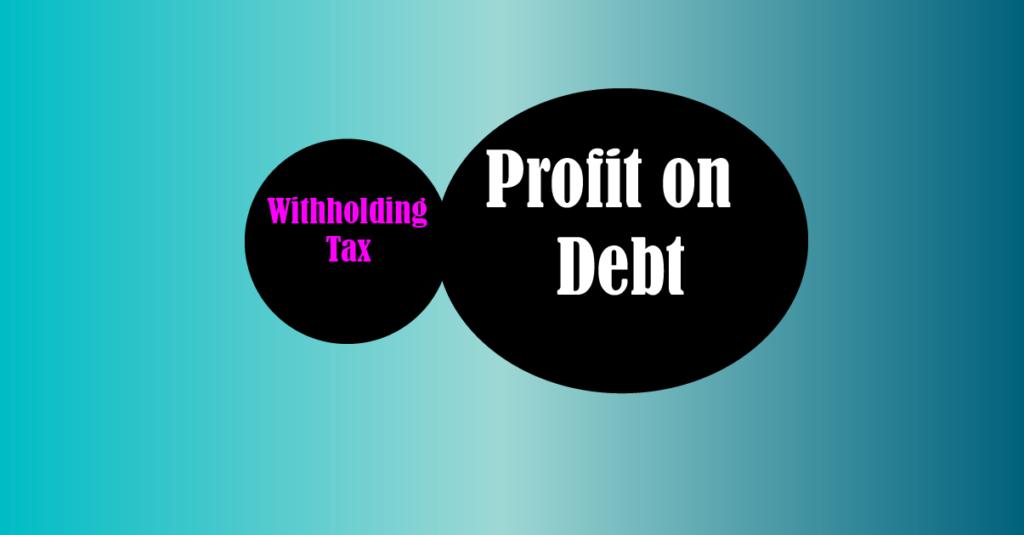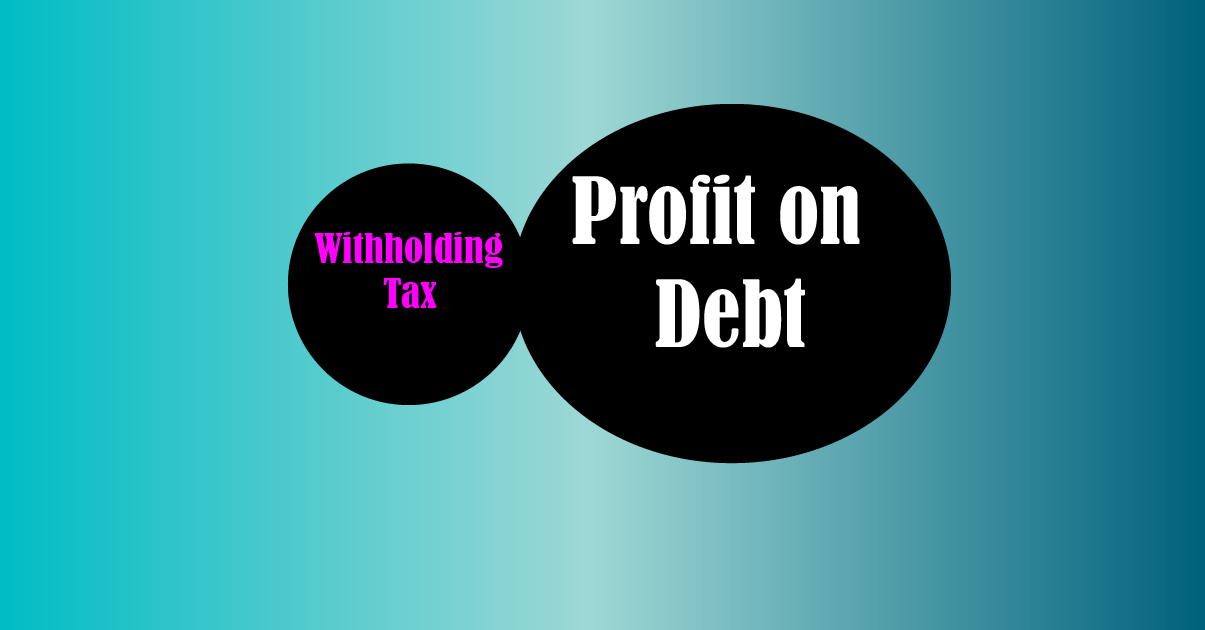
Introduction
In Pakistan, withholding tax on profit on debt is applicable to interest income earned from various types of debt instruments, including bonds, debentures, and other securities. The profit on the debt has the same connotation as interest or markup. The profit on debt in Pakistan under Section 151 of the Income Tax Ordinance, 2001 refers to the:
Table of Contents
- Yield on an account, deposit, or certificate under the National Savings Scheme or Post Office Savings Account;
- Payment of any profit by a banking company or financial institution on a debt, being an account or deposit maintained with the company or institution;
- Disbursement of profit by the Federal Government, a Provincial Government, or a Local Government, to any person on any security;
- Payment by a banking company, a financial institution, a company as defined in the Companies Act 2017, a body corporate formed by or under any law in force in Pakistan, or a finance society on any bond, certificate, debenture, security, or instrument of any kind, to any person. According to Section 151 of the Income Tax Ordinance, 2001, “the payer of the profit shall deduct tax at the rate specified in Division IA of Part III of the First Schedule from the gross amount of the yield or profit paid as reduced by the amount of Zakat, if any, paid by the recipient under the Zakat and Ushr Ordinance, 1980 (XVII of 1980), at the time the profit is paid to the recipient.”
- “Every special purpose vehicle or a company, at the time of making payment of a return on investment in sukuks to a sukuk holder shall deduct tax from the gross amount of return on investment at the rate specified in Division IB of Part III of the First Schedule.”
Withholding Tax Rate on Profit on Debt in Pakistan
The tax rate varies depending on the type of debt instrument and the status of the recipient as given below:
- If the recipient is a non-resident individual or a foreign company, the withholding tax rate on profit on debt is generally 20%.
- The withholding tax rate on profit on debt in Pakistan, under section 151, shall be 15% of the yield or profit.
- According to Section 151 (1A), the withholding tax rate on profit on debt (return on investment in sukuks) shall be—
| Status of a Sukuk-Holder |
Tax Rate |
| Company |
25% |
| Individual and Association of Persons
If the return on sukuk is more than one million |
12.5% |
| Individual and Association of persons if the return on investment is less than one million. |
10% |
*Sukuk is an Islamic financial instrument, similar to a bond. It complies with the principles of Islamic Sharia. It is a substitute for the traditional Western interest-paying bond structure.
KEY TAKEAWAYS
Method of Collection of Withholding Tax on Profit on Debt
The tax is usually withheld at the source of payment, which means that the payer of the interest income is responsible for deducting the tax from the payment and remitting it to the tax authorities.
For example, banks debit the withholding tax to the saving account of a client while crediting the bank profit and credit the tax withheld to the Federal Board of Revenue.
The implication of Withholding Tax on Bank Profit
The withholding tax on profit on debt under the Section 151 of the Income Tax Ordinance, 2001 shall be the minimum tax, except where:-
- a taxpayer is a company; or
- gain on debt is taxable under section 7B
Conclusion
It is important to note that tax laws and rates can change over time, so it is advisable to consult with a tax professional or refer to the latest tax regulations for accurate and up-to-date information on withholding tax on profit on debt in Pakistan.

